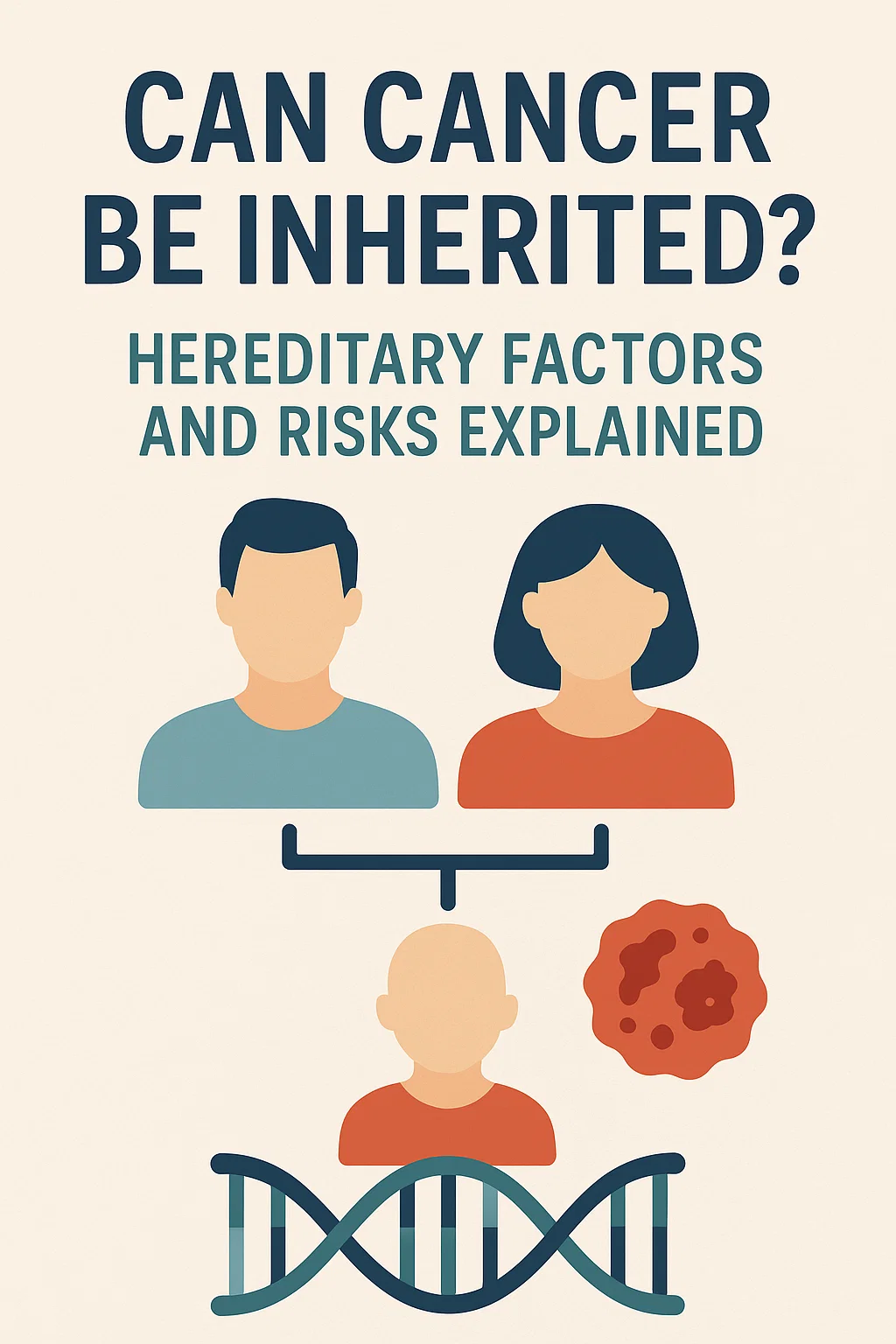Can Cancer Be Inherited from Parents to Children: Hereditary Factors and Risks
Cancer, a multifaceted and complex illness, arises from genetic mutations in cellular DNA, causing an uncontrollable proliferation of cells. Many harbor the belief that cancer is an inherited condition, but in truth, its development is influenced by a blend of hereditary and environmental factors. In this article, we will explore how cancer is linked to heredity, which genetic mutations elevate the risk, and what steps can be taken to mitigate these risks.
1. Hereditary Factors and Cancer
Although cancer is not strictly an inherited disease, research reveals that certain types of cancer may have hereditary ties. Inherited mutations in specific genes can increase the likelihood of developing cancer in offspring if one or both parents carry similar genetic alterations.
Hereditary Syndromes
Certain syndromes that predispose individuals to cancer may be passed down through generations. Examples of these include:
- Li-Fraumeni Syndrome: A genetic disorder caused by a mutation in the TP53 gene. Individuals with this syndrome face an elevated risk of developing various cancers, including breast cancer, brain tumors, and sarcomas.
- BRCA Syndrome (BRCA1 and BRCA2): These genes, when inherited from one parent, significantly amplify the risk of breast and ovarian cancers in women, and prostate cancer in men.
- Hereditary Colorectal Cancer Syndrome (e.g., Lynch Syndrome): Mutations in DNA repair genes can lead to a heightened risk of colorectal cancer and other cancers.
- Hereditary Neurofibromatoses: Disorders such as neurofibromatosis can increase the chance of developing nervous system tumors.
These are just a few of the hereditary syndromes that can elevate cancer risk. It is important to understand that the presence of such genetic mutations does not guarantee that cancer will develop, but it certainly raises the odds.
2. Cancer and Genetic Mutations
Genetic mutations are alterations in DNA that can either be inherited or acquired over time due to exposure to external elements, such as ultraviolet radiation or toxic chemicals. Some of these mutations are passed down from one or both parents.
A genetic predisposition to cancer manifests in the form of changes in genes that regulate cell growth, division, and death. These mutations can occur in homeostatic genes that govern cellular functions, as well as in genes involved in DNA repair mechanisms.
Genes Linked to Cancer
- BRCA1 and BRCA2: These genes are vital in repairing damaged DNA. Mutations in these genes can result in uncontrolled growth in breast and ovarian cells.
- TP53: One of the most crucial tumor-suppressor genes, TP53 helps cells eliminate damaged DNA. Mutations in this gene increase susceptibility to various types of cancer.
- APC: A gene responsible for regulating cell division. Mutations in APC can lead to the formation of polyps in the intestines, which may eventually develop into cancer.
- MLH1, MSH2, MSH6: Genes associated with Lynch Syndrome, which amplifies the risk of colorectal cancer and other forms of malignancy.
3. Environmental Factors and Cancer
While genetics plays a pivotal role, it is equally important to acknowledge the influence of external factors that can significantly affect cancer development. Environmental elements such as:
- Smoking: The leading cause of lung cancer and other cancers in various organs.
- Environmental Pollution: Contaminated air and water often contain carcinogens, increasing cancer risk.
- Poor Nutrition: A diet high in fats and low in fruits and vegetables can heighten cancer susceptibility.
- Ultraviolet Radiation: Prolonged sun exposure without protection can induce skin cancer.
These factors may interact with genetic predispositions, amplifying the likelihood of developing cancer. For instance, an individual with a mutation in the BRCA1 or BRCA2 genes is at a considerably higher risk of developing breast or ovarian cancer, especially if exposed to carcinogenic factors such as smoking or pollution.
4. Can Cancer Be Passed to Children?
Cancer itself is not an infectious disease, nor can it be directly transmitted from parent to child in the same way as a virus. However, as mentioned earlier, certain forms of cancer are linked to heredity. If one of the parents carries a genetic mutation that increases cancer risk, there is a possibility that their offspring could inherit this mutation, thereby facing a higher likelihood of developing cancer later in life.
How Cancer Can Be Inherited
- Genetic Predisposition: As highlighted earlier, mutations in specific genes can elevate the risk of cancer.
- Hereditary Syndromes: Syndromes like Li-Fraumeni, BRCA, or Lynch Syndrome can be passed from parent to child, raising the risk of developing certain cancers.
However, it is crucial to note that genetic predisposition does not ensure the development of cancer. Lifestyle modifications, regular health check-ups, and preventative measures can lower the risk of onset.
5. How to Minimize Risks
If cancer has been present in your family, especially if it has a hereditary basis, several steps can be taken to reduce the risks:
- Routine Health Screenings: Regular screenings for early cancer detection are crucial, particularly if there is a family history of cancer.
- Genetic Counseling: If you are aware of hereditary cancer in your family, consulting with a genetic counselor can provide clarity on the genetic risks faced by you or your children.
- Healthy Lifestyle Choices: Avoiding smoking, moderating alcohol consumption, maintaining a balanced diet, and staying physically active can help lower the risk of many types of cancer.
- Sun Protection: Wearing sunscreen and protective clothing can reduce the likelihood of skin cancer caused by UV radiation.
6. Conclusion
While cancer is not inherently a hereditary disease, genetic predisposition plays a significant role in its development. Inherited mutations in specific genes can markedly increase the chances of cancer in descendants. However, it is essential to remember that genetic factors are just one piece of the puzzle. Environmental influences, such as lifestyle, diet, and exposure to pollutants, are equally significant. Therefore, maintaining a healthy lifestyle, undergoing regular medical exams, and seeking genetic counseling can aid in early detection and reduce cancer risks.

